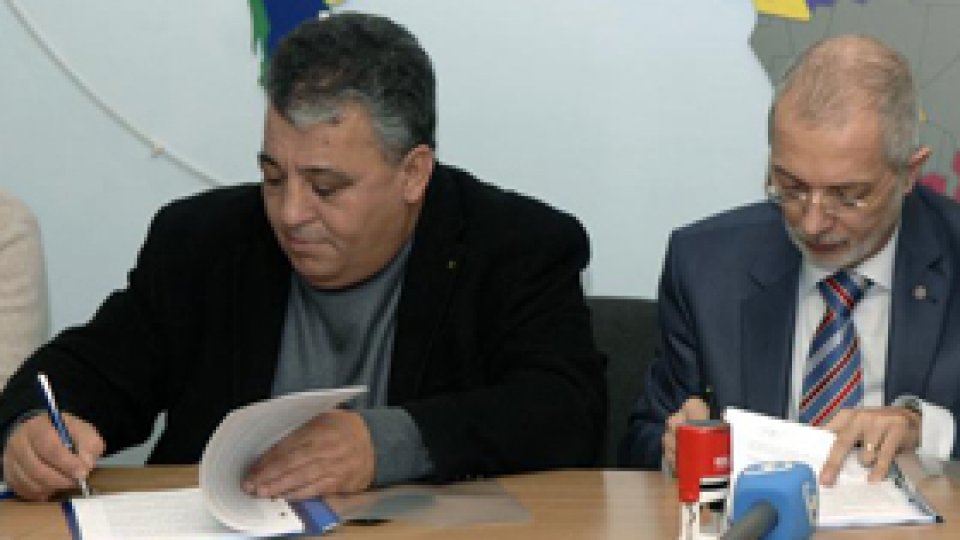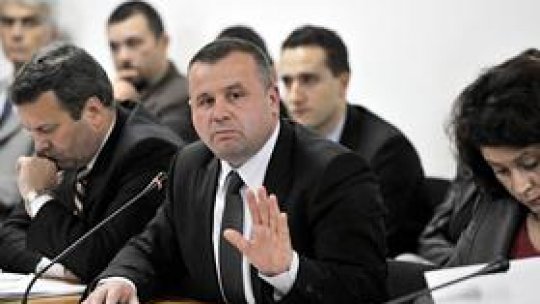Alternative to Labour Code presented to the Government
Trade unions and employer associations have submitted their own Labour Code version to the Government as an alternative to the one promoted by the Ministry of Labour.

Articol de Bogdan Mihai, 22 Ianuarie 2011, 12:57
Representatives of trade unions and the employer associations who were part of the technical committee to amend the Labour Code submitted to the government their common supported alternative in response to the one promoted by the Labor Ministry.
The document was signed by several trade unions such as: the Democratic Trade Unions’ Confederation of Romania (CSDR), the National Confederation of Free Trade Unions of Romania – Brotherhood (CNSLR), Cartel Alfa, the National Union Bloc (BNS), the Meridian National Trade Union Confederation (Meridian) and several employer associations, for instance: the National Council of Romanian Employers (CoNPR), the General Union of Romanian industrialists 1903, the Employers’ Confederation for Industry, Services and Commerce (CPISC) and the National Union of Romanian Employers (UNPR).
A number of representatives of employer associations that are part of the Employers Confederation Alliance, have expressed their support for the government’s project, which created tensions earlier this week during the negotiations.
The Executive may include some of the proposals of the alternative, which was signed Friday, in the draft Labour Code that they would support, but it is not compulsory.
A final form of the draft law should be completed soon, given all signals, including from President Traian Băsescu and the Prime Minister Emil Boc, that this is a priority.
The Labour Market Flexibility
The discussions on the Labor Code change started last year and have been supported by the generally accepted idea that the labor market in Romania must be more flexible.
The economic crisis has caused many employers to restrict their activity.
From their point of view, the termination of an inefficient employee is too slow, as the employees are excessively protected by the current labor legislation.
The Foreign Investors Council has proposed the government several measures that, they claimed, would increase the competitiveness of Romanian economy and, naturally, would lead to the establishment of new jobs.
The Labour Ministry appropriated some of these proposals, even though the unions have disputed then.
In an interview on public television, the Minister of Labour, Ioan Botiş, said that investors should be supported.
‘The big challenge for us in the next period represents the jobs and the investments. We need investors and should provide a friendly environment to these investors, ‘ Ioan Botiş said.
Among the Foreign Investors Council’s proposals are to make the settling of the working hours more flexible, to encourage the temporary work or to eliminate the mandatory collective working agreement at national level for the private companies that have signed collective agreements at company level.
The situation was criticized by Traian Băsescu
The talks between unions, employer associations and the Labor Ministry representatives lasted several weeks in the latter part of last year.
The situation was criticized by President Traian Băsescu in the first government meeting this year.
The Head of State then criticized the indefinite extension of the talks to amend the labor law.
Delayed talks, Băsescu said, are part of a union strategy to block the changes.
Băsescu said that ‘if you can not draw a conclusion, it means that the visions are different and who must take the responsibility lies is the government.’
Divergences regarding the Labor Code update amplified earlier this week when representatives from the labor ministry reached an agreement with the Employers Confederation Alliance in Romania.
Another part of employer associations, General Union of Romanian industrialists 1903 and Employer Confederation of Romanian Industry (Conpirom), continued the discussions with the unions, resulting in a draft amendment of the Labor Code signed on Friday.
Representatives of labor unions demanded the resignation of the minister, Ioan Botiş, and threatened that, unless the proposals are taken into account, they could move to radical street protests.
Translated by: Iulia Florescu
MA Student, MTTLC Student, Bucharest University









